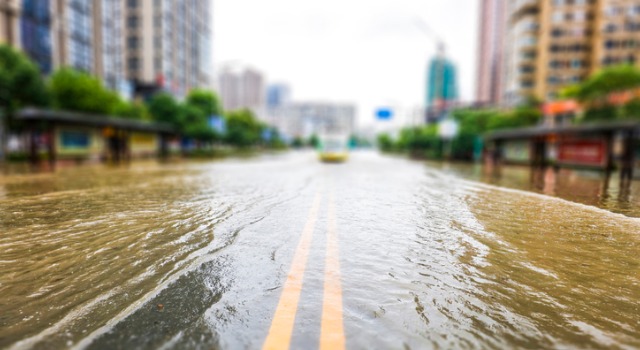By Brentnie Daggett
Many states across the U.S. saw record-breaking snow and rainfall this past winter. Now, in the middle of spring, what will increased precipitation mean for flooding?
Related: Water Woes: Tips for Reacting Quickly to Summer Flooding
It’s always better to be over-prepared than to be caught off guard when it comes to potential flooding, especially if you own a rental property that's occupied by tenants. Just a few inches of water in a home can cause tens of thousands of dollars' worth of damage.
Here are some considerations to help you prevent flooding at your property and protect your property if a flood does occur:
Is my property at risk for flooding?
While flooding can happen anywhere, it's particularly important to be prepared for a flood if you live in a low-lying area near a body of water like a stream, river or culvert; along a coast; or downstream from a dam or levee. Regardless of your location, you can always utilize tools like FEMA’s Flood Map to determine your property’s flood risk.
Flooding can occur during any season, but some areas of the country are at greater risk during certain times of the year. Coastal locations are at a greater flood risk during hurricane season (June to November), while the Midwest is at a higher risk in the spring and during heavy summer rains. Even the deserts of the Southwest can be at risk for flash floods during the late summer monsoon season.
Reduce your risk and protect your property before a flood occurs.
According to FEMA, there are a number of steps you can take to prepare your property for a flood and reduce your risk of flood damage:
- Elevate any critical utilities, electrical panels, switches, sockets, wiring, appliances or heating systems.
- Waterproof basements and other areas prone to flooding.
- Install a water alarm to alert you if water is accumulating in your basement or other areas of your home.
- Always clear all debris from gutters and downspouts.
- Anchor any fuel tanks.
If your rental property is subject to flooding—from storms or natural disaster—be sure to keep your tenants informed and prepared about any potential flood risks. Check in with your tenants regularly and educate them on what to do during a flood emergency. A good landlord will provide an emergency kit with flashlights, instructions to turn off utilities and emergency contact information. Always require your tenants to leave the rental property if evacuations are ordered.
Make sure you have flood insurance coverage.
In most cases, standard homeowners insurance or a landlord policy will not cover flood damage. Landlords will need separate flood insurance coverage to ensure their property is protected. The National Flood Insurance Program (NFIP) is supported by the federal government.
Your insurance will likely not cover any of your tenants' belongings, so encourage them to purchase renters insurance to protect their things. You may even be able to require tenants to maintain renters insurance as a condition in the lease agreement.
Every homeowner is at risk of experiencing flooding in some form, but many remain unprepared and unprotected. In fact, floods are the nation’s most common natural disaster, though most insurance policies don’t cover this issue. By understanding your risk, preparing your home to the best of your ability, having an emergency plan in place, and knowing what to do if a flood is approaching your property, you can protect your property, your tenants and yourself.
 Brentnie Daggett is a writer and infographic master for the rental and property management industry. She loves to share tips and tricks to assist landlords and renters alike. To learn more about Daggett, and to discover more great tips for renters, visit www.rentecdirect.com.
Brentnie Daggett is a writer and infographic master for the rental and property management industry. She loves to share tips and tricks to assist landlords and renters alike. To learn more about Daggett, and to discover more great tips for renters, visit www.rentecdirect.com.








